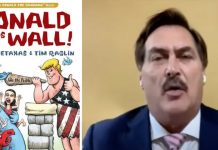The classification of marijuana as a Schedule I drug as well as the continuing controversy as to whether or not cannabis is of medical value ?are obstacles to medical progress in this area. Based on evidence currently available the Schedule I classification is not tenable; it is not accurate that cannabis has no medical value, or that information on safety is lacking.
The Journal of Open Neurology, May 4, 2012.
Cannabis is not just a liberal or conservative issue — it’s a broad issue that exposes problems with how our country confronts the modern age. Nor is marijuana a moral issue or even an illegal drug issue. It is, and should only be, viewed as an economic and scientific issue.
What are the economics of marijuana? ?CNBC ran a?story about this back in April of 2010. ?They correctly assumed the value of the market to be less than that of alcohol or cigarettes, based on their estimates of 10% or fewer of the adult population using the product regularly. With those constraints, they came up with a forty-billion dollar market. ?Their reasoning seems credible, and the market is probably somewhat larger three years later due to increased legality of the product.? So we now have a forty-billion dollar market that remains mostly unregulated and un-taxed, and then seem confounded as to why the “war on drugs” produces no results. Common sense and cannabis policy seem to be on two different planets.
But not only should we consider the value of this market, we should consider what de-legalizing this market costs society. Prison costs in California alone, per year, are estimated to be around?$156 Million. ?That number is from a partisan group that advocates for legal marijuana usage. But even if the number is a hundred-million dollars per year, that represents a lot of ?tax-payer revenue. Revenue that, for one state, California, could prop up underfunded and looming pension shortfalls, help make college education more affordable, or do anything more productive than locking up its citizens. And that number only reflects to cost of incarceration. Not the wasted police time. Not the wasted court time. I could go on. I think it is reasonable to assume the “real” cost being over two hundred million. Nor does this take into account that the estimated taxes of legalized marijuana would bring an estimated one to two billion dollars per year into the state. ?So economically speaking we can choose to save hundreds of millions of dollars, ?have more efficient police and courts, and add billions of dollars to our bottom line. And this is one state. Amplify this across the entire country and the cost/benefit analysis of treating cannabis as an economic issue becomes impossible to ignore.
There are also other social costs such as the effectiveness or intelligence of teaching kids through DARE programs that marijuana is just as bad as heroin – which is a fallacy. So much so that in November of 2012, DARE stopped mentioning it altogether. The other social costs that should be looked at are crime rates for persons high on pot versus those on other drugs. Violent versus non-violent crime, etc.
There is also the economic cost no one talks about which is how current marijuana sales subsidizes the cost of other drugs and keeps them low. The fabled Mexican drug cartels built a distribution network in the United States primarily to sell cocaine. But just like every channel on your television doesn’t need a different antenna, it made more sense to feed other products into their supply chain. Cocaine and Heroin were imported products but Marijuana and Meth were Mexican grown or Mexican made products that had a high profit margin. That margin with the supply network made the other drugs cheaper and, to be fair, did make rather innocuous marijuana into a gateway drug because it was simply another product on the shelf and the distributors had to pump the products. Is it possible that by legalizing marijuana you could increase the costs of those other drugs and have less of a “gateway” effect. Common sense seems to say yes.
So we are looking at an economic situation where a crop of unknown origin, with God knows what pesticides sprayed on it, ?generates mountains of un-taxed income all the while costing us billions of dollars yearly trying to persecute and prosecute those who use and sell it. Does this make sense regardless of how anyone falls on the issue of marijuana? Looking at this as a pure economic enterprise what should we do? What can we do? ?The simple answer is also the most difficult. Decriminalize, tax, and regulate.

As I said above, Cannabis is also a scientific issue. Here in California for twelve years the Center for Medicinal Cannabis Research (CMCR) conducted numerous and rigorous scientific studies on the uses and effects of marijuana. ?Dr Igor Grant ?from the Center said, ?”Every one of the studies showed a benefit. The convergence of evidence makes me convinced there is a medical benefit here, and there may be a niche for cannabis.”
Also, when looking at the science of pot, it is worth comparing the substance to alcohol or cigarettes. Marijuana has not been linked to cancer and has been found to provide relief to those who suffer. Other studies suggest cannabinoids may even help treat cancer. So marijuana is decidedly better than tobacco. Tobacco also, “consumes the strength of the land more than most crops” whereas cannabis (and hemp) are known to replace nitrogen into the soil and are good for crop rotation. ?As far as marijuana versus alcohol? Liver and mental damage are the end result of alcohol abuse. ?So in this case also marijuana is a better choice and safer than alcohol.
The CMCR using scientific methods proved over and over again that marijuana is beneficial for pain, MS, HIV, cancer, and a raft of other medical problems. The anti-cannabis crowd tells us we should investigate to find out what the active ingredients are, extract them, patent them, and then turn them over to a pharmaceutical company to be turned into a prescription drug. The simple solution is simply to use the product as it is.
So looking at Cannabis from a scientific viewpoint it is a better product environmentally than tobacco and safer physically than alcohol. This substance has even proven to provide relief — more satisfying relief — from pain than prescription drugs. So the science seems clear.
The solution as I said above is to decriminalize, tax and regulate. The economics demands it and the science demands it.
John Fugelsang on Current TV has a commercial promoting his show where he says, “If you are for states rights AND the war on drugs you must be high.” ?It’s funny and catchy. Marijuana is being presented to us as either a states rights issue, a moral issue, or a “drug” issue. I think that is too complicated and mires the chances for intelligent discussion down in side shows. Marijuana is a crop. Not much more or less than that. That is how the discussion should begin, then move on to the economic and scientific issues surrounding that crop. That is how the issue should be settled.
In an age when we are spoon fed that any taxes on the rich, or corporations, or tariffs on slave made goods are bad for our economy how can the same people who make those arguments, using their same power of logic, then say that the fourth largest cash crop in the United States also should not be part of the “free market?” ?Normalizing marijuana would create tens of thousands of jobs in the private sector add much-needed tax revenue to public coffers and free police officers and prison guards to actually do their jobs without being crushed under the wave of non-violent criminals their time is currently overly occupied with.
Marijuana isn’t a liberal issue. Not at all. It is an economic/scientific issue being badly used by those who would rather read slogans than lead. Cannabis is simply another example of failed economic policies combined with bad laws used to terrorize the populace that lead to disregard and lack of respect for all laws and all authority figures. Good policy leads to good results. Bad policy does not. Marijuana isn’t liberal but it does need to be liberalized. As they used to say in the Army, “Smoke ’em if you got ’em.”
Top photo of President Barack Obama smoking pot photo from Newsbusters.Org.
Edited & published by EAP




